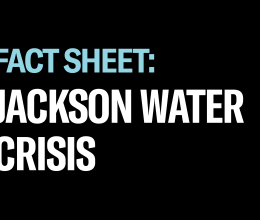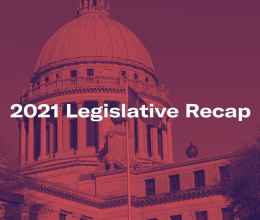This would, in short, destroy our nation's safety net for health care. It would hurt anyone struggling to get by. And the impact on people with disabilities, women, and LGBT people would be particularly dire.
People with disabilities: Restructuring Medicaid with per capita caps would badly damage the ability of states to serve seniors and people with disabilities, particularly the almost 600,000 now on waiting lists to access communitiy-based services. Even worse, since Medicaid does not allow states to limit enrollment in nursing homes and institutions, the brunt of these cuts will fall on in-home care. If passed into law, the AHCA will force states to dramatically cut back the home and community-based services that allow children and adults with disabilities to stay in their own homes and lead independent lives instead of nursing homes. These services are not covered by private insurance and are paid for predominantly by the Medicaid program. If Congress succeeds in implementing a plan to end Medicaid as we know it, hundreds of thousands of people with disabilities will be at risk of institutionalization or loss of support. The cuts to Medicaid would also severely impact children with disabilities because many states use Medicaid dollars to provide services in children's special educations plans under the Individuals with Disabilities Education Act.
Women: Women who lose their insurance coverage, either through the insurance markets of Medicaid, will lose access to birth control and other necessary preventive care that the ACA guaranteed. Access to birth control enables women to pursue education and careers and to plan whether and when to have children, empowering them to lead full and healthy lives. The bill also attacks abortion access by banning the use of tax credits for insurance policies that cover abortion beyond life endangerment, rape, or incest. This would push insurance companies to exclude abortion coverage fromt their plans and could virtually eliminate abortion coverage in the private insurance market, leaving women without the option to buy a comprehensive plan.
The AHCA would also "defund" Planned Parenthood by blocking Medicaid patients from seeking care at Planned Parenthood health centers, denying many low-income women lifesaving preventive care like breast exams, cancer screenings, STI tests and treatment, and birth control. As a result, Planned Parenthood health centers, which 2.5 million people rely on for care every year, may be forced to close their doors. The CBO estimates that the bill's defunding provision would restrict access to services that help women avert pregnancy, particularly for women in low-income communities that lack other health care providers.
LGBT people: The bill would also add additional barriers to care for LGBT people. LGBT people are less likely to have insurance, and they are at greater risk for HIV and even some cancers. LGBT older adults in particular face more health disparities and are more likely to be poor than other older Americans. By weakening Medicaid and making health insurance coverage unaffordable, the AHCA would leave many LGBT people without coverage and increased health disparities. Additionally, because Planned Parenthood welcomes LGBT patients and provides critical preventive care and sex education, blocking Medicaid patients from Planned Parenthood health centers would hit the LGBT community particularly hard, especially transgender people. Planned Parenthood is one of the largest providers of health care for trans people in the nation.
It's no wonder that more and more Republicans are publicly voicing concern about the bill since the CBO report's release. So far, President Trump has made no attempt to reconcile the bill's massive cuts with his promise not to cut Medicaid during his campaign. And Speaker Paul Ryan still wants to bring this bill to the House floor next week, despite the growing opposition from all sides.
The good news is that there's still time to stop this incredibly destructive bill Tell Congress now: Oppose the ACA repeal bill.








